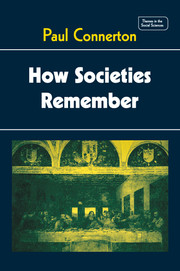Summary
All beginnings contain an element of recollection. This is particularly so when a social group makes a concerted effort to begin with a wholly new start. There is a measure of complete arbitrariness in the very nature of any such attempted beginning. The beginning has nothing whatsoever to hold on to; it is as if it came out of nowhere. For a moment, the moment of beginning, it is as if the beginners had abolished the sequence of temporality itself and were thrown out of the continuity of the temporal order. Indeed the actors often register their sense of this fact by inaugurating a new calendar. But the absolutely new is inconceivable. It is not just that it is very difficult to begin with a wholly new start, that too many old loyalties and habits inhibit the substitution of a novel enterprise for an old and established one. More fundamentally, it is that in all modes of experience we always base our particular experiences on a prior context in order to ensure that they are intelligible at all; that prior to any single experience, our mind is already predisposed with a framework of outlines, of typical shapes of experienced objects. To perceive an object or act upon it is to locate it within this system of expectations. The world of the percipient, defined in terms of temporal experience, is an organised body of expectations based on recollection.
In imagining what a historic beginning might be like, the modern imagination has turned back again and again to the events of the French Revolution. This historic rupture, more than any other, has assumed for us the status of a modern myth.
- Type
- Chapter
- Information
- How Societies Remember , pp. 6 - 40Publisher: Cambridge University PressPrint publication year: 1989
- 4
- Cited by



